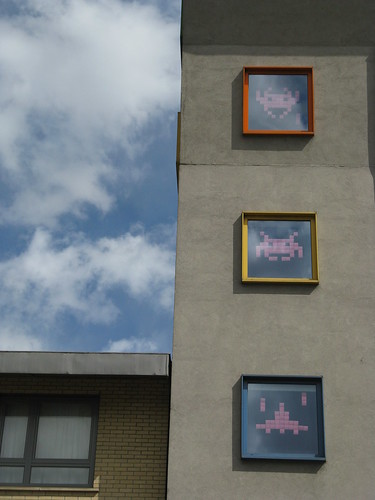 I am often asked "Does knowledge management have to be top-down, command and control? Should the company be telling people what to do and how to do it? Why can't knowledge just emerge, from the bottom up?
I am often asked "Does knowledge management have to be top-down, command and control? Should the company be telling people what to do and how to do it? Why can't knowledge just emerge, from the bottom up?
The answer, as usual, is that it is a question of Horses for Courses. There is some knowledge which can and should "bubble up from the bottom", and there is some knowledge that needs a top-down validation (but even in this case, this tends to be top-down validation of bottom-up contribution).
Let's look at the second case, as this is the one that people end to struggle with.
Here we are looking at knowledge that is mission critical, or related to safe operation. Knowledge like how to run a nuclear power plant, or an oil refinery, or how to fly a jumbo jet. we already know from incidents like the Longford Refinery disaster that in such situations the company is legally obliged to ensure that operators have access to the knowledge they need to do their jobs, and that "operator error" is no excuse if the knowledge is absent.
Any organisation will then put in place structures to make sure that people with mission-critical jobs have access to the best knowledge, compiled from the best sources, and will require validation that this is happening.
I recently presented about this, and mentioned the role of the "Practice Owner" - the person who acts as custodian or guardian of an area of knowledge. There were some immediate questions - "who gives this person the right to tell others what to do? What if they are wrong?". The answer is that the person speaks on behalf of the community of practice (and is often appointed by the community), and acts as a check and validator on the community process.
If the community members find a problem with company procedures then this is the person who checks that out, runs the management of change, and signs off (on behalf of the community and the company) on the new process.
People sometimes ask, why doesn't the community collectively sign off? The answer is, for company critical knowledge, you need checks and balances. Otherwise you can imagine the courtroom conversation
"What made you think that the procedure you provided Mr X, which resulted in the destruction of the laboratory, was safe?"When the company is responsible for providing correct knowledge, the company needs that validation process in place, which goes beyond star-ratings and Likes, and requires proper review and sign-off.
"Well your honour, it got 20 Likes in the company knowledge system"
What you generally end up with, in high reliability organisations, is three levels of knowledge;
- There is the "Must Follow" knowledge, which is enshrined in the company standards, and which has been signed off by the Practice Owners (on behalf of the Community) as being the only safe or effective approach. Examples might be the operating procedures for the above-mentioned Nuclear plant, or the in-flight checklists for the Jumbo Jet (and which were missing, incomplete or inadequate at Longford Refinery). This is the top down knowledge.
- There is the "Should Follow" knowledge, which is represented by "Current Best Practice", and which the community collectively agrees that is the best way to do something, and which should be used as a default unless you have a good reason to do otherwise. These are the contents of the Community Wiki, or the community knowledge base, and there will be generally some form of validation procedure to determine that this really is the best knowledge available at the moment.
- Finally there is the "Could Follow" knowledge, that represents the good ideas, good examples, tips and hints, and templates. This is generally the content of the community forums and the community Yammer streams, and has the Likes and the star ratings. This is the bottom up knowledge, bubbling up from below and attracting rating and commentary as it goes, until it passes a validation step to become "Should Follow".




1 comment:
Excellent article! I really like the three levels and can see them being brought into a learning conversation to help guide knowledge need
Post a Comment